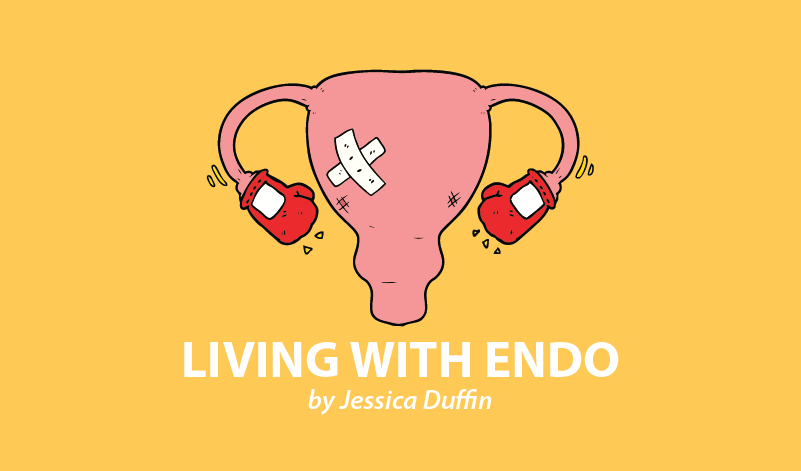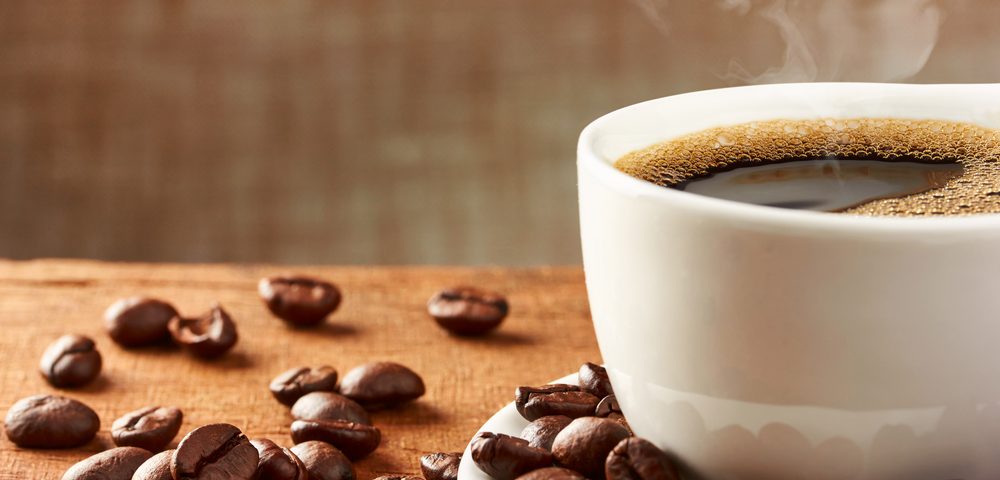
I love meeting for coffee. When partying every weekend is no longer an option, coffee hangouts become your new place to be.
Yet there are compelling reasons why cutting down on caffeine is recommended for endometriosis. Caffeine can increase endometriosis pain, aggravate the digestive symptoms many women experience, and can heighten the anxiety that comes with endometriosis.
While everyone is different, coffee is one of my biggest triggers, so I’ve spent the last few years finding alternatives. From decaf to tea lattes, healthy and natural alternatives can help us support a life with endometriosis.
Effects of caffeine on endometriosis
Inflammation
In studies, caffeine has been shown to increase inflammation.
Inflammation is good for the body to a certain extent — it’s our bodies’ healing technique. But too much of it, which is the case with endometriosis, causes chronic pain and other problems. As the areas with endometriosis are already inflamed, adding an inflammatory food that will be digested and eventually will make its way to these cells will often worsen that inflammation and the pain associated with it.
Evidence supports the theory (as does my personal experience) that women report a significant decrease in symptoms after they remove caffeine from their diets. This also was demonstrated in a 1998 study.
Estrogen
Excess estrogen has been linked to encouraging the development of endometriosis, and women with endometriosis have been found to have much higher levels of estrogen than those without the disease.
Research has found that caffeine may increase the production of estrogen and that woman who drink coffee have up to 70 percent higher levels of estrogen.
IBS symptoms
Caffeine is acidic and may cause irritation to the stomach lining, causing pain or ulcers or aggravating existing stomach issues. It is also a laxative, and so for women who encounter these kinds of stomach problems with endometriosis, caffeine may worsen those symptoms, including abdominal cramping and diarrhea.
Anxiety
Caffeine increases our heart rates and acts as a stimulant, heightening the activity in our brain and nervous system. While this is great for those who need a pick-me-up, for people suffering from anxiety — which is very common in those with endometriosis — this can trigger a “fight or flight” mode and increase the physical sensations of anxiety. Caffeine-induced anxiety disorder and anxiety attacks are now acknowledged as real and an issue for those with existing anxiety.
Everybody is different
While the information above is compelling evidence, some people find caffeine boosts their mood and has little to no impact on their endometriosis symptoms. Additionally, an analysis of studies published in 2014 found that caffeine doesn’t directly increase the risk of endometriosis — though this doesn’t mean that it won’t trigger endometriosis symptoms, as mentioned above.
With all things endometriosis, it’s about finding what feels right for you. If you do feel that you could benefit from reducing your caffeine intake, my personal recommendation would be to start slowly, as caffeine withdrawal is a real thing and can cause painful headaches and reduced energy.
Below are some of my recommended alternatives to help you through the transition.
Hot chocolate
Cacao/cocoa does have caffeine in it, but a lower level compared to coffee, so it could make a comforting substitution when you’re really craving a cup of coffee.
Of course, sugar can really heighten inflammation, so I like to make mine with little to no sugar, depending on my pain levels.
If you’re making your own, try using a flavorful nut milk such as hazelnut and adding spices to make up for the lack of sugar. Rice milk is naturally sweet and can really help with sweetening the taste without as much added sugar.
Turmeric latte
This root that has been used for centuries has been said to reduce inflammation and tastes amazing in a latte. Loads of health cafés and coffee shops now do turmeric lattes, or you can make your own.
I like making mine with rice milk, vanilla powder, and cinnamon. If you’re new to the taste, start with a little as it can take some time getting used to!
Chamomile latte
I know, sounds crazy — but I promise it’s good!
I haven’t seen chamomile lattes at too many cafés yet, but I like making my own at home. I heat up almond milk in a pan with two to three teabags, vanilla essence or powder, and even nutmeg and cinnamon.
Research has shown that chamomile has sedative properties and may help calm us down, so this could be a really helpful option if endo-related anxiety (or generalized anxiety) is keeping you awake at night.
Those are some of my favorites, but there are many more out there. Have a look at your local health food store or coffee shops to see what options are available near you.
***
Note: Endometriosis News is strictly a news and information website about the disease. It does not provide medical advice, diagnosis, or treatment. This content is not intended to be a substitute for professional medical advice, diagnosis, or treatment. Always seek the advice of your physician or other qualified health provider with any questions you may have regarding a medical condition. Never disregard professional medical advice or delay in seeking it because of something you have read on this website. The opinions expressed in this column are not those of Endometriosis News or its parent company, BioNews Services, and are intended to spark discussion about issues pertaining to endometriosis.

